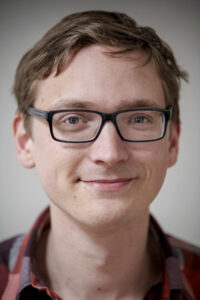About
The project
How could knowledge make an impact in the world and on people’s lives? This project, funded by an MSCA postdoctoral fellowship under the European Union’s Horizon Europe research and innovation programme, investigates this question by studying the case of criminal interrogations and forensic psychology in Germany, France and the Netherlands between 1880 and 1940.
Obtaining confessions, often crucial to convince judges or juries of a suspect’s guilt, was a prime concern for many interrogators in 19th- and 20th-century continental Europe. Yet many suspects did not spontaneously confess. As a result, interrogators developed specific knowledge and techniques to obtain confessions, sometimes inspired by psychological insights. The goal of this project is to assess to what extent, why and how scientific innovations in psychology (particularly in experimental psychology and psychoanalysis) made an impact on criminal interrogations.
To do so, three actions will be taken. The first action is to study how knowledge about interrogation circulated among and between scientists and practitioners and within and between countries. The second action is to study how different actors evaluated different forms of knowledge and how epistemic hierarchies were produced. The third action is to study how formal, published knowledge about criminal interrogation related to actual interrogation practices in criminal investigations.The project thus adds a phenomenological perspective to the history of knowledge, studying how knowledge interacted with the bodies, feelings, spaces and objects.
Taken together, these actions will provide a case study that shows how – under what conditions and by what means – knowledge could make an impact in the world, through its circulation, evaluation and application.
The researcher
 Dr. Elwin Hofman is the main researcher carrying out this project. He is a Marie Skłodowska-Curie fellow at Utrecht University. His research concerns the social and cultural history Europe since the eighteenth century, with a special focus on crime, emotions, sexuality, selfhood and psychology. He holds a PhD from KU Leuven and has previously been a postdoctoral fellow of the Research Foundation – Flanders at KU Leuven, and a BAEF postdoctoral fellow at New York University.
Dr. Elwin Hofman is the main researcher carrying out this project. He is a Marie Skłodowska-Curie fellow at Utrecht University. His research concerns the social and cultural history Europe since the eighteenth century, with a special focus on crime, emotions, sexuality, selfhood and psychology. He holds a PhD from KU Leuven and has previously been a postdoctoral fellow of the Research Foundation – Flanders at KU Leuven, and a BAEF postdoctoral fellow at New York University.



